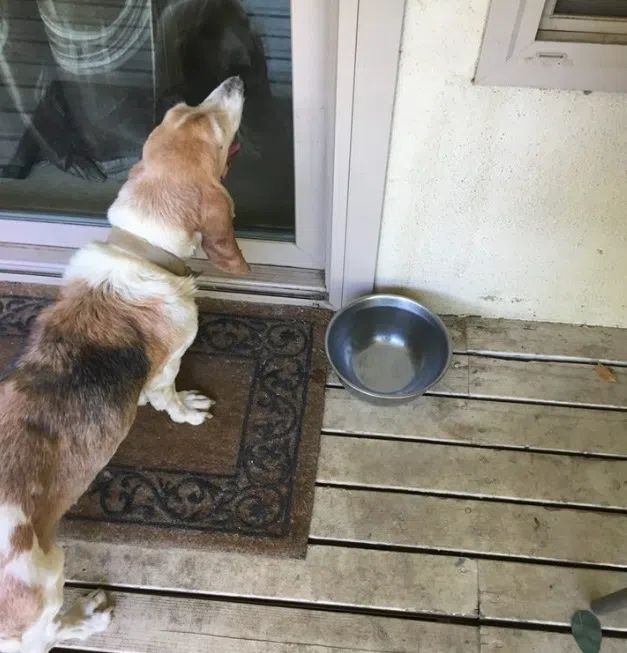FRESNO, CA (KMJ) – The Central California SPCA is warning residents to take extra caution with their pets in the heat.
Spokesperson Walter Salvari says the SPCA is being inundated with calls complaining about animals suffering from blistering temperatures.
“We receive phone calls through our dispatch department for animals that are suffering from heat stroke. We’ve also received animals at the intake desk coming in already deceased or on their way out due to the heat.” – Walter Salvari, CCSPCA Spokesperson.
Salvari says residents need to bring pets inside an air conditioned building, if possible.
“People are forgetting to leave a lot of water out there for them or there’s just not enough shade for the animal.” says Walter Salvari. “So we’re asking that people just keep in mind that their pets can’t be in the 100 degree plus weather.”
Do not leave pets in vehicles, says Salvari.
“A vehicle can get extremely hot – anywhere between 120° to 150° if it’s anywhere between 90° to 110° out here in Fresno.” – Walter Salvari, CCSPCA Spokesperson.
If you see signs of heat stroke contact your vet immediately.
Central California Society for the Prevention of Cruelty to Animals tips on how to care for your pets during these extremely hot summer days:
1. Bring them inside an air conditioned building, if possible.
2. If you can’t bring them inside, make sure they have plenty of access to fresh, cool water, shade & a cool place to rest.
3. Don’t tether them in direct sun. Tethered animals must be on a trolley system and have access to shelter/shade and water.
4. Do not leave pets in vehicles. Temperatures rise quickly and can cause heat stroke and death.
5. Walk your dog during the coolest part of the day. Asphalt and concrete get extremely hot and can cause your pet’s paws to burn. Always test the ground by placing your hand flat against it and holding it there for 5 to 7 seconds. If it’s too hot for you, it is too hot for them.
6. Know the signs of heat stroke. If they exhibit a high temperature (anything over 102°), rapid breathing, bright red tongue, thick/sticky saliva, shock/coma, vomiting, please contact your vet immediately!
Click below to listen to the report by KMJ’s Liz Kern








